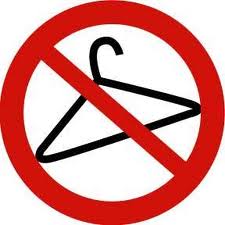Jane’s Due Process highlights just how hard it is for a pregnant teenager to get a judicial bypass for the purpose of obtaining an abortion under existing law.
The Survey.
Jane’s Due Process (JDP) is a 501(c)(3) organization that formed shortly after Texas’ parental involvement law went into effect in 2000. Our mission is to ensure free legal representation for every pregnant minor in Texas whether she chooses to obtain an abortion or become a parent. Among a laundry list of services, we guide minors through the judicial bypass process, guaranteeing non-biased and judgment-free legal representation. Every few years, JDP surveys the district clerks offices around Texas to ensure that clerks are in fact providing callers seeking judicial bypass with correct and comprehensive information.This report is based on a district clerk call-around completed in February-March 2015. The caller posed as a pregnant minor seeking information about how to obtain a judicial bypass in her residing county. We chose to survey all counties in Texas with populations above 50,000 (62) and spot-check the smaller counties (19). In total, we surveyed 81 counties. The caller asked the following questions:
1. How do I apply for a judicial bypass?
2. Where do I go to file my application for a judicial bypass?
3. Whom do I ask to help me fill out my application?
4. Will anyone else find out that I am applying for a judicial bypass?
5. How do I get a lawyer?The Results.
Our results were overwhelmingly disappointing and highly concerning. A mere 26% of counties provided the caller with factually correct information. Even more frightening, 37% of counties denied entirely their office’s involvement with judicial bypass filings, and a vast 81% of counties had no immediate knowledge of the existence of judicial bypass. A stunning 43% of counties provided the caller with blatant misinformation. Several district clerks went a step further and provided the caller with personal, religious advice, referencing “God’s plan” for the minor. One clerk announced she was an “advocate for Crisis Pregnancy Centers” and wanted to meet with the minor in person after work. Other clerks simply told the caller to “pick up the phone and call a lawyer” with one abruptly hanging up the phone.While our results depend largely on the clerk who happened to answer the phone under Texas law, clerk’s offices should help any and all minors who seek to file a bypass application. While one clerk may be more knowledgeable than another, the clerk who answers the phone should be able to connect a minor to help immediately. This survey’s methodology replicates precisely what could happen in a real-life situation if a pregnant minor were to simply call her district clerk’s office seeking information. In cases where a clerk does not have any information, he or she should at least be able to transfer the caller immediately to someone who can provide the caller with the correct information, rather than providing the caller with misinformation or no information at all.
We cannot stress enough our concern regarding these findings. The judicial bypass provision is in place as a safety net for pregnant teens who cannot involve a parent or legal guardian in their pregnancy, often times for fear of abuse or abandonment. Judicial bypass absolutely must be accessible to this highly vulnerable population. District clerk’s offices must be trained properly to provide complete and accurate information so that every Texas minor has access to this constitutionally protected provision. Indeed, when the State is not upholding this legal requirement in practice, it creates very serious constitutional problem that may place minors in danger.
I don’t think it’s too much to ask for elected officials to know and follow the law, do you? Of course, they may not have to worry about it in the near future if pending legislation makes it through the process and gets signed into law. I’m old enough to remember when the parental consent law that created the judicial bypass process was first enacted. Opponents at the time argued that all it would do was put up obstacles and create danger for a vulnerable population. Apparently, it wasn’t enough of an obstacle for some people. Nonsequiteuse has more.

